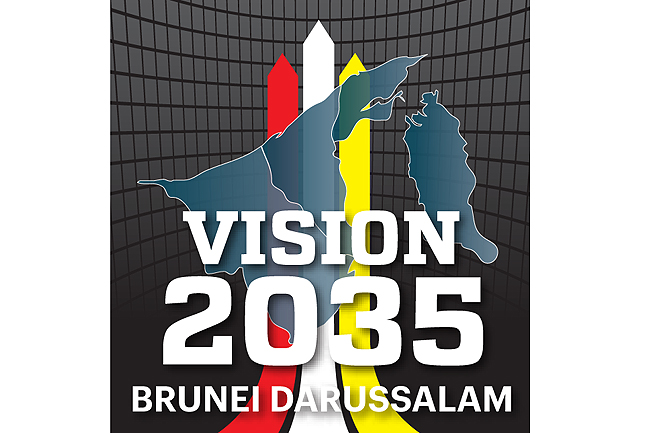Brunei scores high in healthcare initiatives
THE results of an array of regional and international studies focussed on a range of different fields released in June included Brunei Darussalam in their findings.
One such study was Mercer’s 25th annual Cost of Living Survey 2019, in which Bandar Seri Begawan was ranked the 102nd most expensive city for employees working abroad – up four spots from 2018.
As reported on June 29, Brunei’s capital city is also the second most expensive city in ASEAN after Singapore, which is the third costliest city in the world. Jakarta is ranked 105th, Phnom Penh 108th, Manila 109th, Hanoi 112th, Yangon 117th, Ho Chi Minh 120th and Kuala Lumpur 141st.
Mercer’s widely recognised survey is one of the world’s most comprehensive, and is designed to help multinational companies and governments determine compensation allowances for their expatriate employees. New York City is used as the base city for all comparisons, and currency movements are measured against the United States (US) dollar.
The survey includes over 500 cities around the world, and this year’s ranking includes 209 cities across five continents and measures the comparative cost of more than 200 items in each location, including housing, transportation, food, clothing, household goods, and entertainment.
The month of June also saw the release of Save the Children’s Global Childhood Report 2019 which takes a look at indicators such as children’s healthcare, education, nutrition and protection.
In the report, Brunei Darussalam was ranked the second-best country in ASEAN for a child to live in after Singapore. Globally, Brunei stands at 63rd spot for 2019, leapfrogging 15 places from its placing in 2000. The country’s Childhood Index score for this year is 907 out of 1,000, compared to 892 back in 2000.
Brunei was categorised as having low under-five mortality rate (per 1,000) at 10.5 per cent; and 19.7 per cent of child stunting (among children aged zero to 59 months)
It was also reported that Brunei’s commitment to basic healthcare and universal health coverage is apparent through a number of achievements under the Millennium Development Goals 2015 and Sustainable Development Goals (SDGs) 2030, such as declining Maternal Mortality Ratio; achieving the target for the Under-5 Mortality Rate; achieving immunisation coverage above SDGs targets, which is more than 95 per cent of children under the age of five being immunised every year; and the declaration of Brunei by the World Health Organisation (WHO) as malaria-free in 1987, polio-free in 2000, measles-free in 2015, and rubella-free in November 2018.
Meanwhile, on June 13 it was reported that sales of vehicles in Brunei Darussalam over the months of January to April this year have risen compared to the same period in 2018. According to data from the ASEAN Automotive Federation, automobile sales jumped 5.4 per cent to 3,764 units from 3,571 units.
The month of January recorded the highest number of car sales with 1,053 units sold, followed by March with 1,039 units, April with 869 units, and February with 803 units.
It was also reported that last year there was a 0.2 per cent growth in car sales in Brunei with 11,226 units sold compared to 11,209 units in 2017. In 2016, 13,248 units were sold, while in 2015, 14,406 units were moved from showrooms.
It was also shared that in April this year, Autoriti Monetari Brunei Darussalam (AMBD) said that Brunei Darussalam saw a decline in the number of accounts for new vehicle financing in 2018 by 15.9 per cent year-on-year, while a rise of 14.6 per cent year-on-year was observed for used vehicle financing.
In terms of value, the total amount of used car financing surged by 62.3 per cent year-on-year from BND113.2 million to BND183.8 million, suggesting a shift in consumers’ preference from new to used cars.
Another notable study reported in June was the latest Asia Power Index, a data-driven comparative assessment of power in the region by think-tank Lowy Institute. The Asia Power Index measures eight types of power: military capability, defence networks, economic resources, economic relationships, diplomatic influence, cultural influence, resilience and future resources.
According to the Index, Brunei Darussalam is ranked 19th in terms of the power it wields in the Asia-Pacific region of 25 countries. Brunei had an overall score of 9.1 out of 100 and remains unchanged compared to last year. The think tank, however, labelled Brunei Darussalam as a “minor power” in Asia due to its relatively low scores.
It was reported that the country scored the highest in resilience (15th place); moved up in economic relationship (16th place) as well as in economic resources (17th place) but dropped two spots in diplomatic influence to 19th place. More work needs to be done in defence network (20th place) and future resources (23rd place), military capability (23rdplace) and cultural influence (23rd place).
Source: https://borneobulletin.com.bn/brunei-scores-high-healthcare-initiatives/


 Thailand
Thailand




